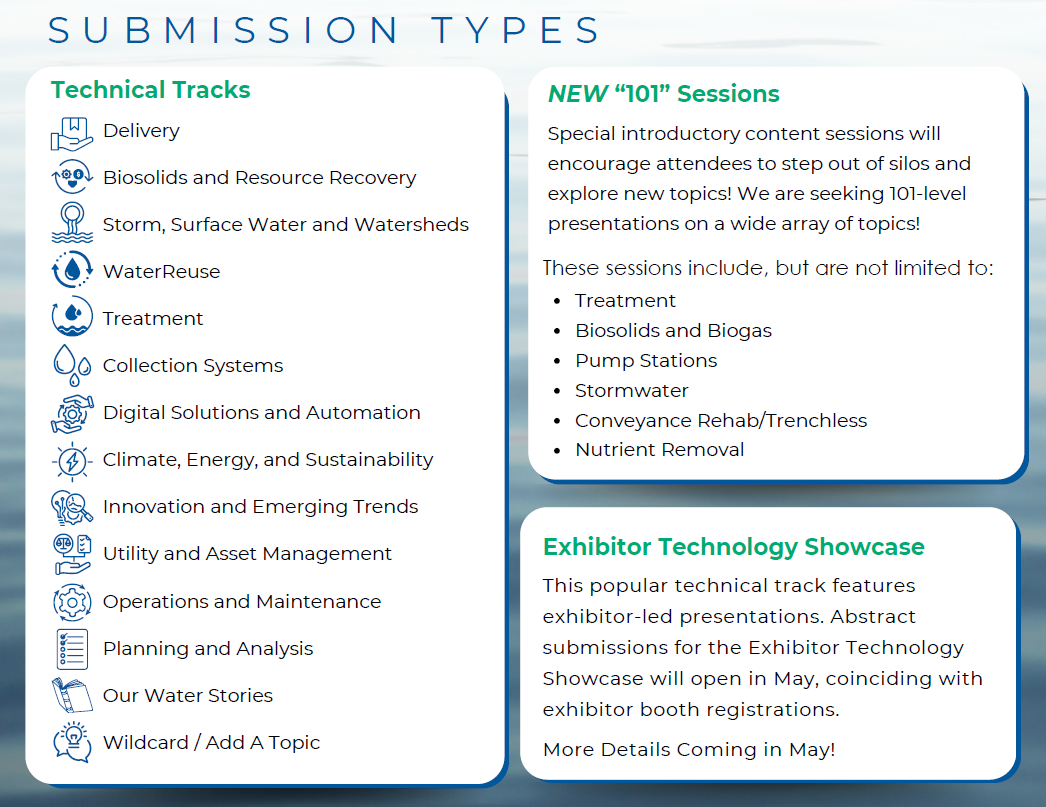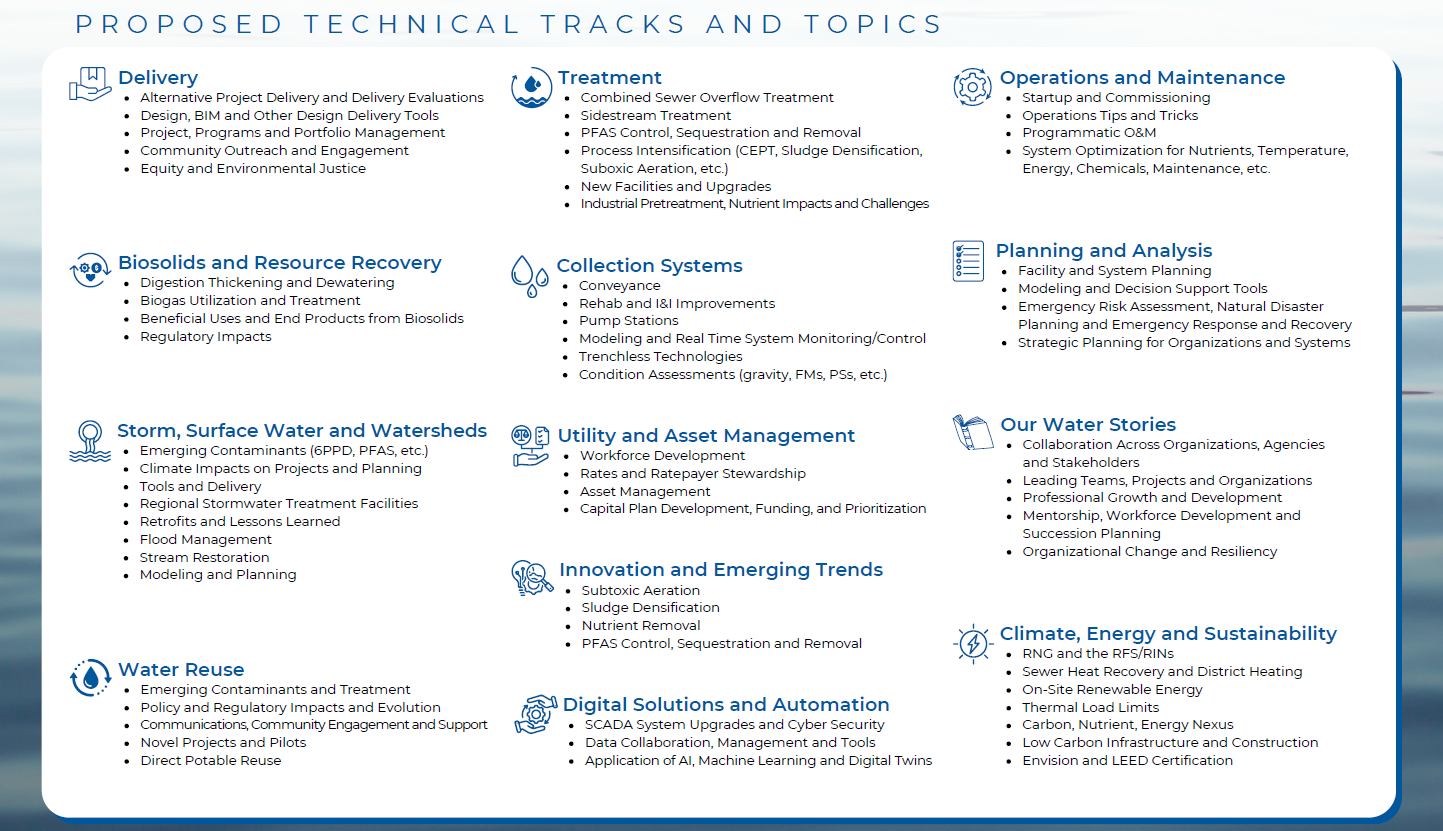PNCWA2025 Abstract Submissions
We are thrilled to begin planning for the PNCWA2025 Annual Conference in Portland, Oregon!
Our theme this year is Flowing Together: Stories of Dedication and Innovation.
We received a record-breaking number of presentation abstracts this year!
A huge thank you to everyone who submitted! Speaker notifications will be sent out in April.

Submission Guidelines:
-
Limit abstracts to 350 words with concise title.
-
Speakers will be notified in mid-April.
-
Selected speakers are required to attend the conference in-person in Portland, Oregon. Registration fees are not waived for Speakers.
-
Presentation slots are 25 minutes long, with limited extensions up to 50 minutes.
-
Copies of accepted presentations will be posted on the PNCWA website following the conference.
Contact PNCWA2025 Conference Technical Chair Jen Murphy with any questions.

Abstract Review Process
PNCWA strives to create a well-balanced program featuring presentations that range from introductory to highly technical, while showcasing diversity in organizations, regions, topics, and speaker backgrounds.
Abstracts for the PNCWA Annual Conference are reviewed through a rigorous process:
- Each abstract is evaluated by three volunteer reviewers with relevant expertise.
- Reviews are conducted double-blind to ensure impartiality.
- Abstracts are scored using these equally weighted criteria:
- Originality and Innovation
- Audience Benefit and Engagement
- Quality of Content
- Clarity and Organization
- Overall Applicability to PNCWA
- Given the high volume of quality submissions, fewer than two-thirds of abstracts are typically selected for the program.
101 Sessions
New this year, we are seeking 101-level presentations on a wide array of topics including, but not limited to:
- Preliminary Treatment (screenings, grit, etc.)
- Primary Treatment (conventional, CEPT, etc.)
- Secondary Treatment (SBR, MBR, BNR, etc.)
- Advanced Treatment (tertiary, RO, etc.)
- Digestion and Biogas
- Drinking Water Treatment
- Biosolids Dewatering
- Wastewater Planning
- Drinking Water Planning
- Storm / Surface water / Watershed Planning
- Stream Restoration
- Water Reuse
- Pumping and Pump Stations
- Conveyance Rehab
- Conveyance Trenchless
- Design, BIM and other design delivery tools
- Asset Management
- Alternative Delivery
- Project Management
- Scheduling and Estimating
- Procurement and Selection
|


